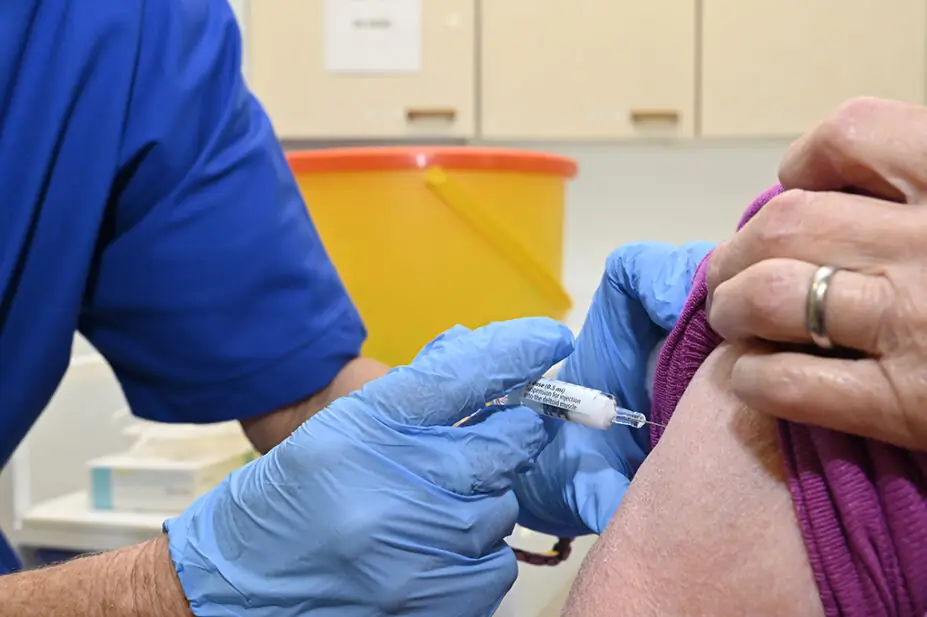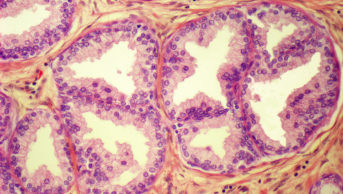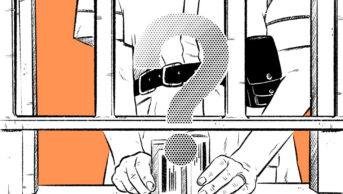
DR P. MARAZZI/SCIENCE PHOTO LIBRARY
The National Institute for Health and Care Excellence has recommended that emergency management kits should be provided to all people with primary and secondary adrenal insufficiency.
The kits — which contain an intramuscular hydrocortisone injection — can be used if adrenal crisis is suspected and can be administered by anyone, including the patient.
Adrenal insufficiency is a condition where the adrenal glands either do not produce any or sufficient amounts of the adrenal hormones cortisol, aldosterone or dehydroepiandrosterone (DHEA). Symptoms include unexplained hyperpigmentation, weight loss, salt-craving and diarrhoea.
Signs of adrenal crisis can include low blood pressure, hyperpigmentation and hypoglycaemia (particularly in children). Milder symptoms include pallor, lethargy and clamminess.
Primary adrenal insufficiency is caused by disease in the adrenal glands themselves, while secondary adrenal insufficiency is caused by inadequate adrenocorticotropic hormone production by the pituitary gland.
Tertiary adrenal insufficiency is caused by inadequate corticotropin-releasing hormone production by the hypothalamus, sometimes resulting from treatment for tumours in the hypothalamus or adjoining structures, or more commonly caused by taking glucocorticoids for more than four weeks.
The recommendation were made in new guidance for the identification and management of adrenal insufficiency, published by NICE on 28 August 2024.
According to the NICE guidance, people with primary adrenal insufficiency (Addison’s disease) or secondary adrenal insufficiency should be provided with two or three emergency management kits.
The guidance says that healthcare providers should consider giving a kit to people aged 16 years and over with tertiary adrenal insufficiency and/or a history of adrenal crisis.
Kits should also be provided to children and young people aged under 16 years with tertiary adrenal insufficiency, NICE advises.
In a press release accompanying the guidance, NICE said that there were 1,220 hospital admissions for adrenal crisis in 2022/2023.
“It is estimated that between 5,700 and 7,900 people in England have primary adrenal insufficiency (Addison’s disease) and between 8,500 and 15,800 people have the more common secondary adrenal insufficiency,” it added.
Commenting on the NICE recommendation, Philippa Sharman, communications and research manager at the Addison’s Disease Self-Help Group (ADSHG), who contributed to the development of the guidance, said: “[The guidance is] vital to timely diagnosis and effective treatment, saving and improving lives, alongside reducing hospital admissions and lengths of stay, lowering costs to the NHS.
“In an emergency situation … healthcare providers do not realise the urgency of treatment for adrenal crises or fail to heed the requests of well-informed patients for hydrocortisone,” she added.
“The NICE guidelines help to address this providing life-saving information. They also help prevent adrenal crises in their clarity over education, steroid emergency cards and a minimum of two emergency injection kits to be issued to all patients. These are just some of the matters the ADSHG called for in our response to the consultation as a stakeholder in the development of the guideline.”
Jonathan Benger, chief medical officer and deputy chief executive at NICE, said: “[The guideline] will help to ensure high-quality care is offered to people with this condition and support them, their families and carers to make informed decisions about their treatment and long-term care.
“Most people with adrenal insufficiency live active lives with few limitations. Our guideline will help them manage the condition effectively and keep themselves safe,” he added.
In 2020, the NHS launched a steroid emergency card for adults with primary adrenal insufficiency, to support early recognition and treatment of adrenal crisis.
1 comment
You must be logged in to post a comment.



Great news, but, getting all the content for even one kit has been a nightmare. We could do with a pre-filled syringe being marketed…